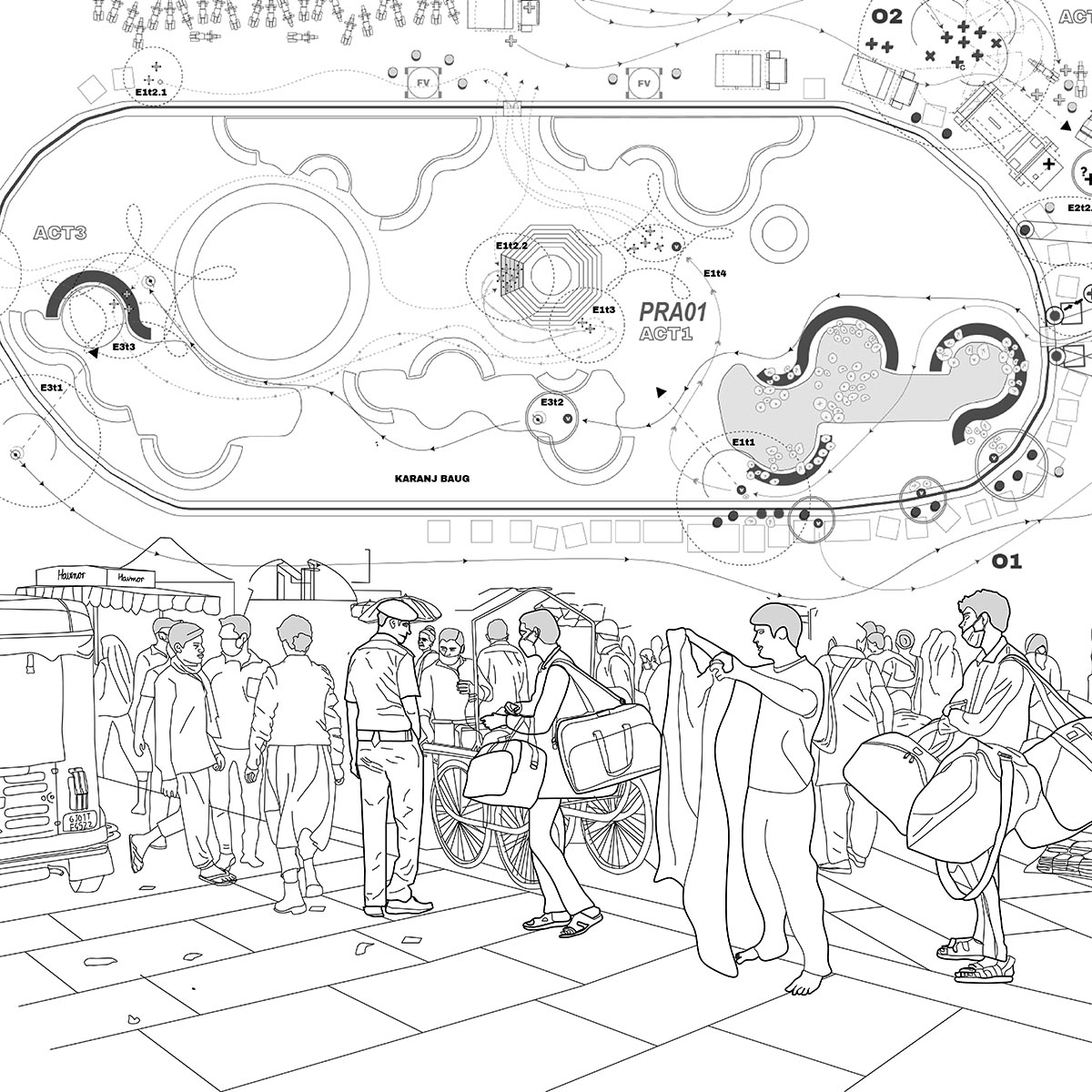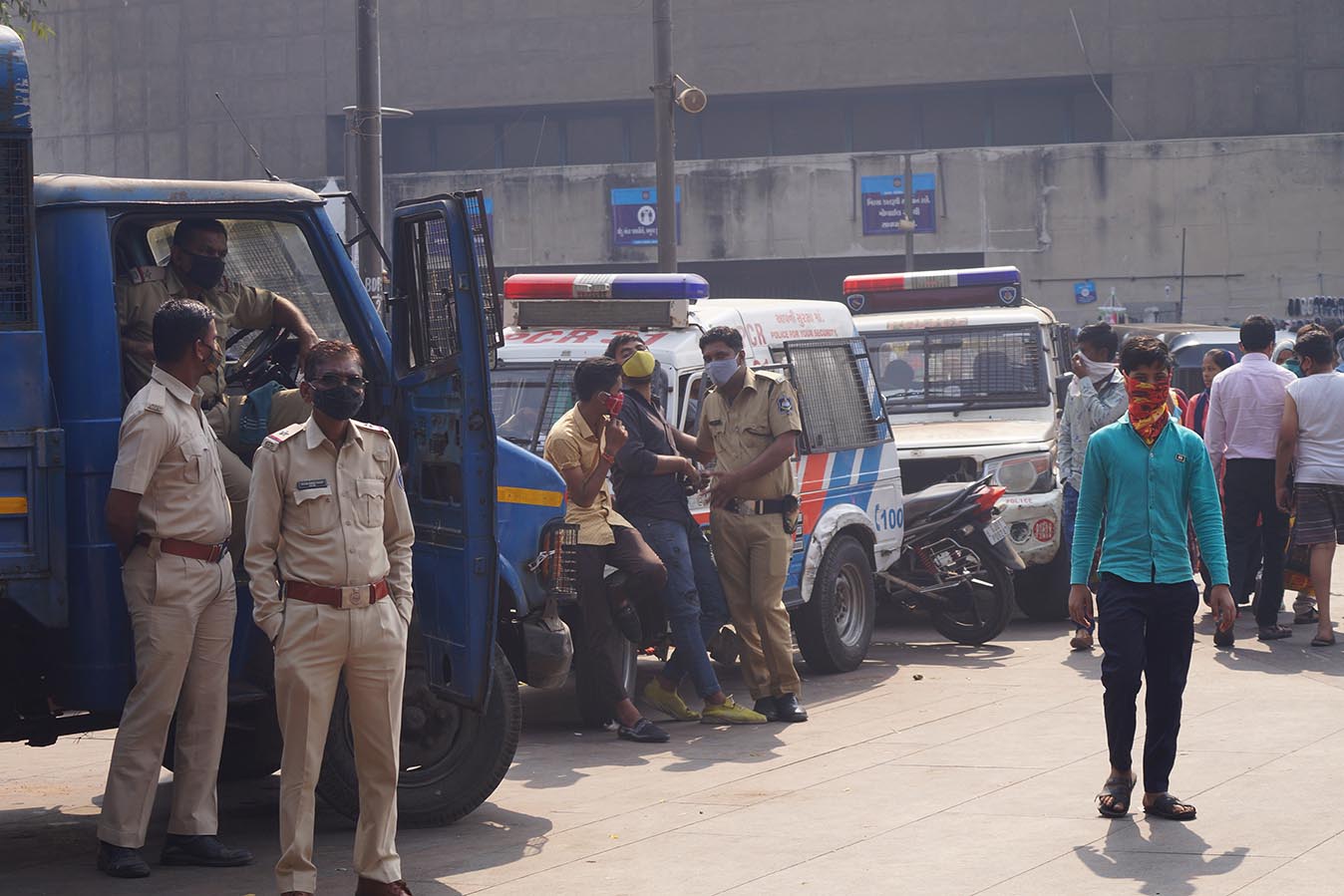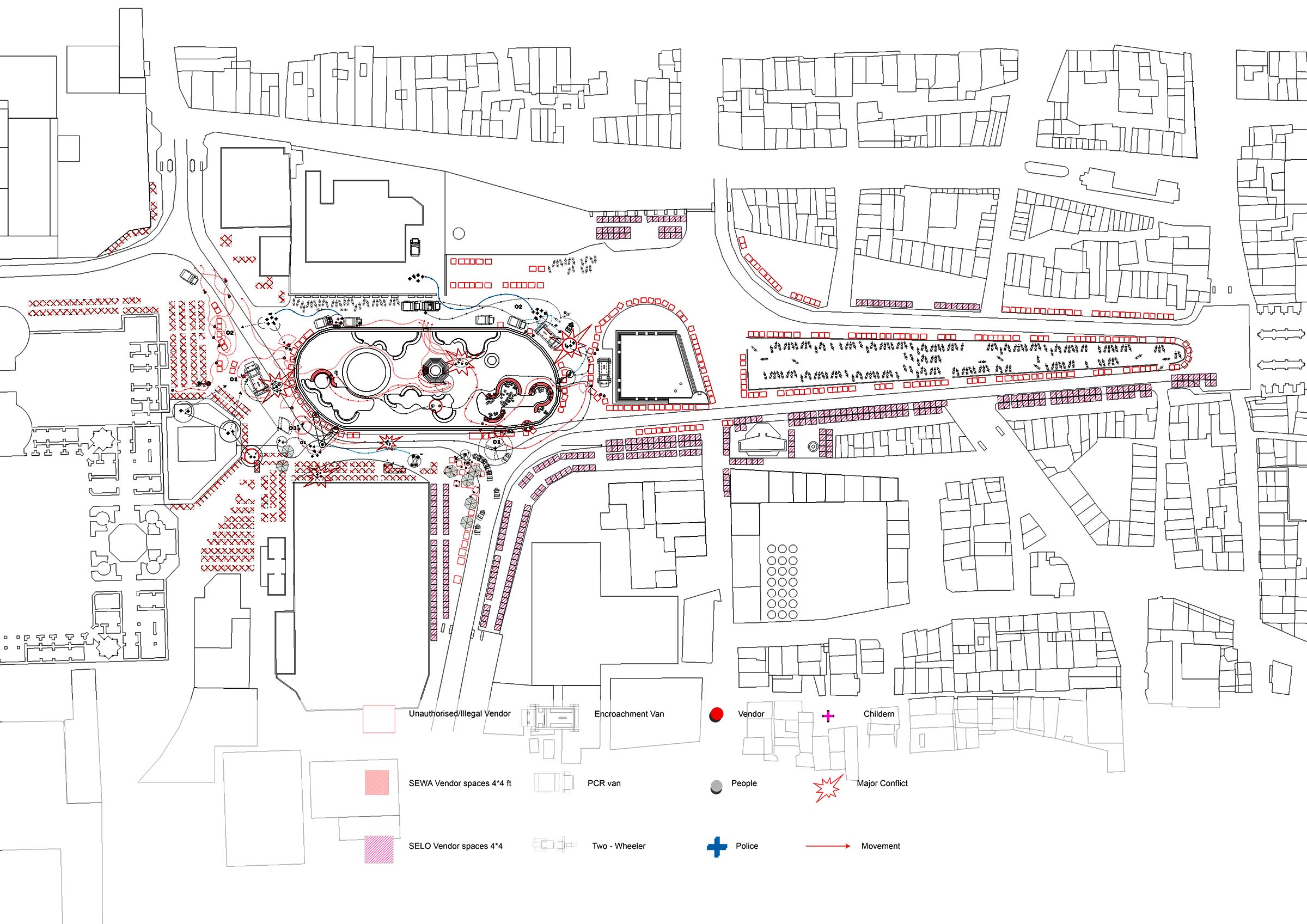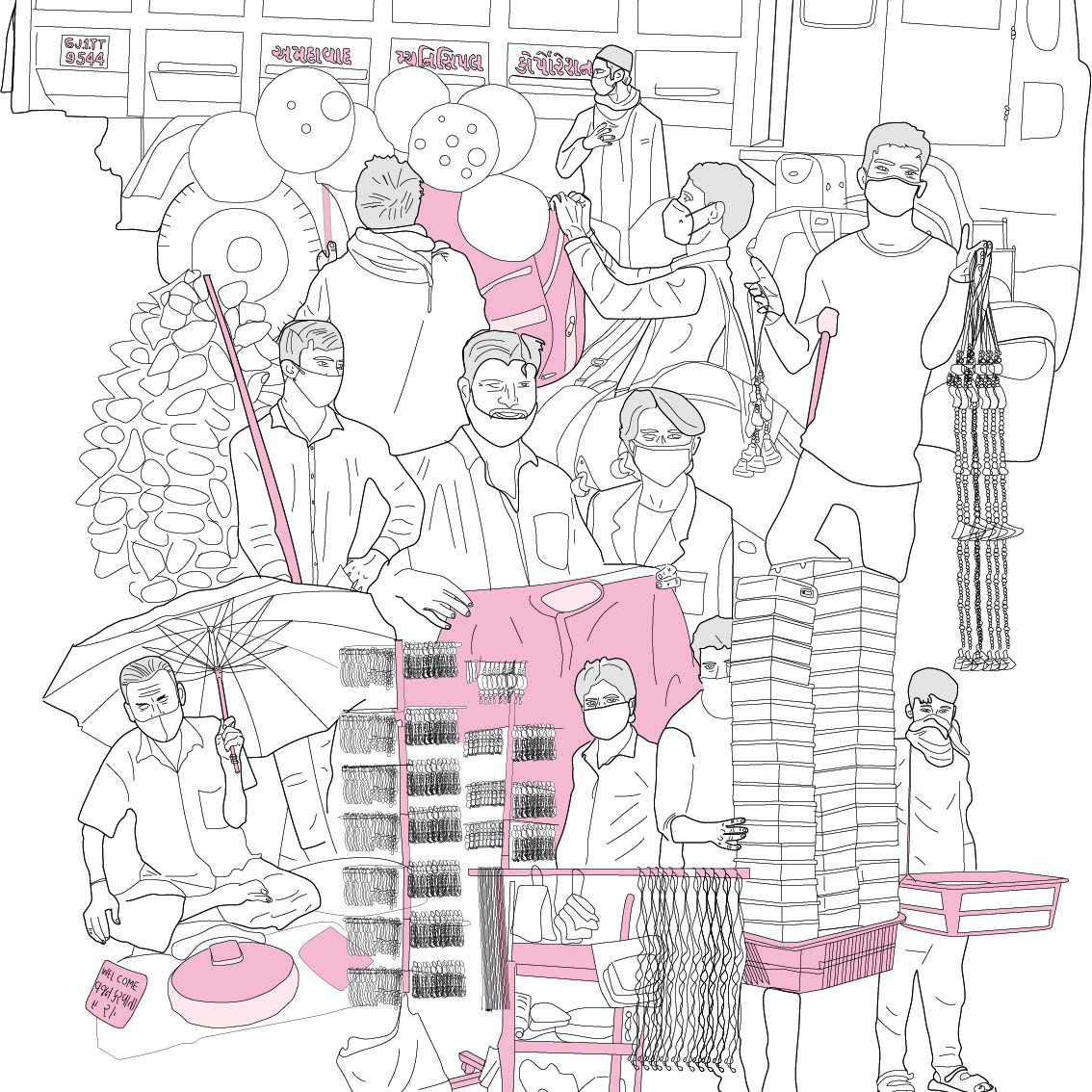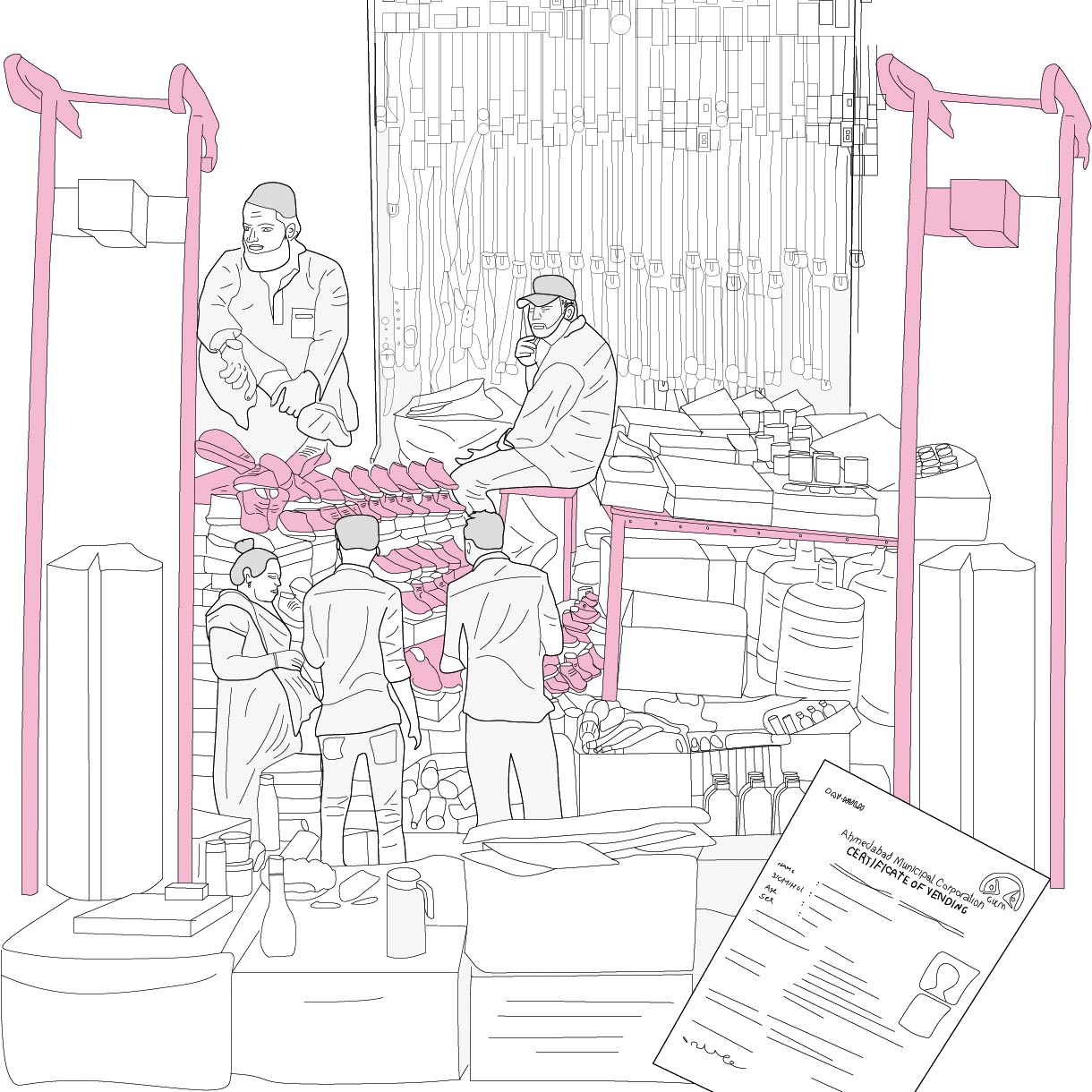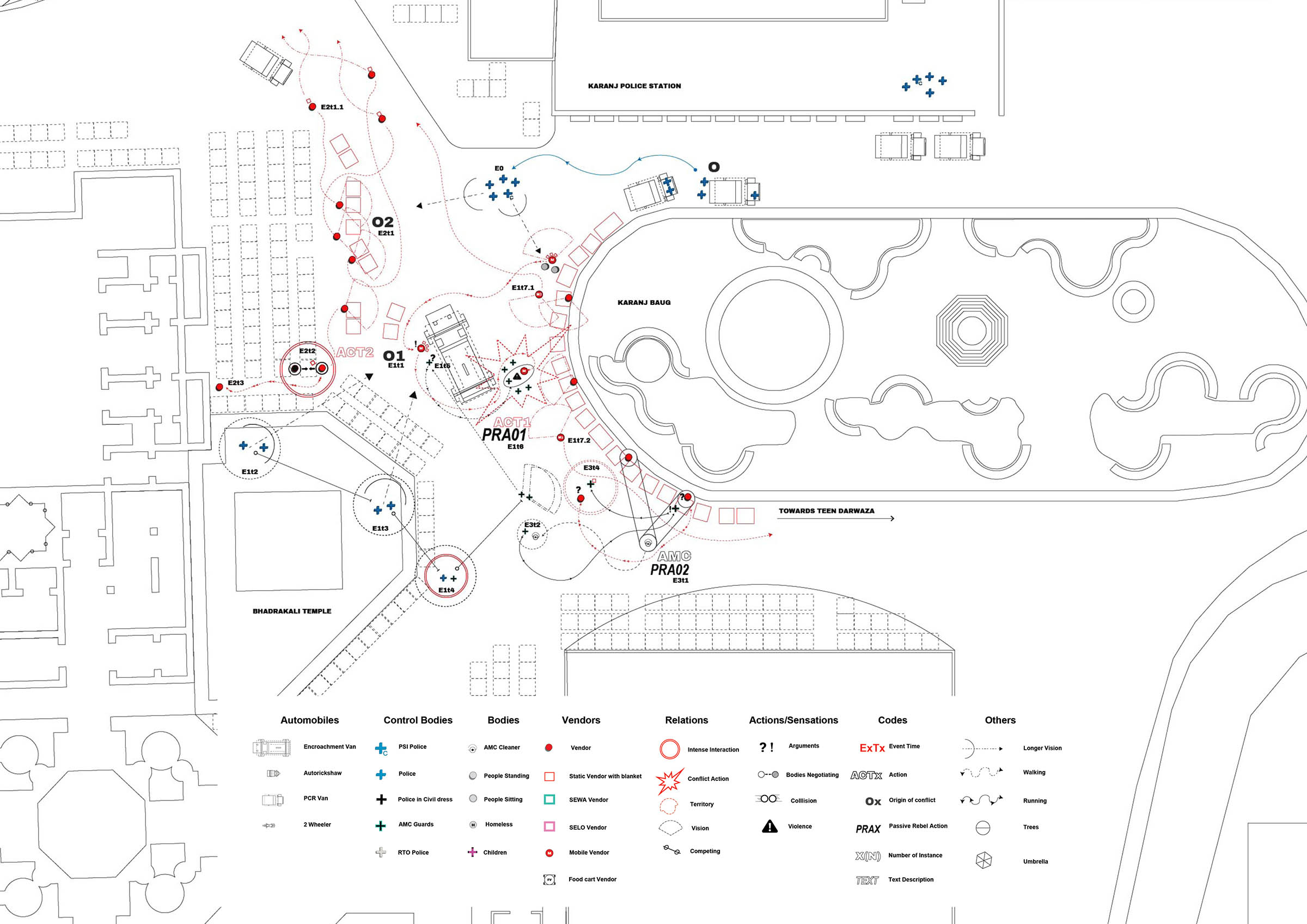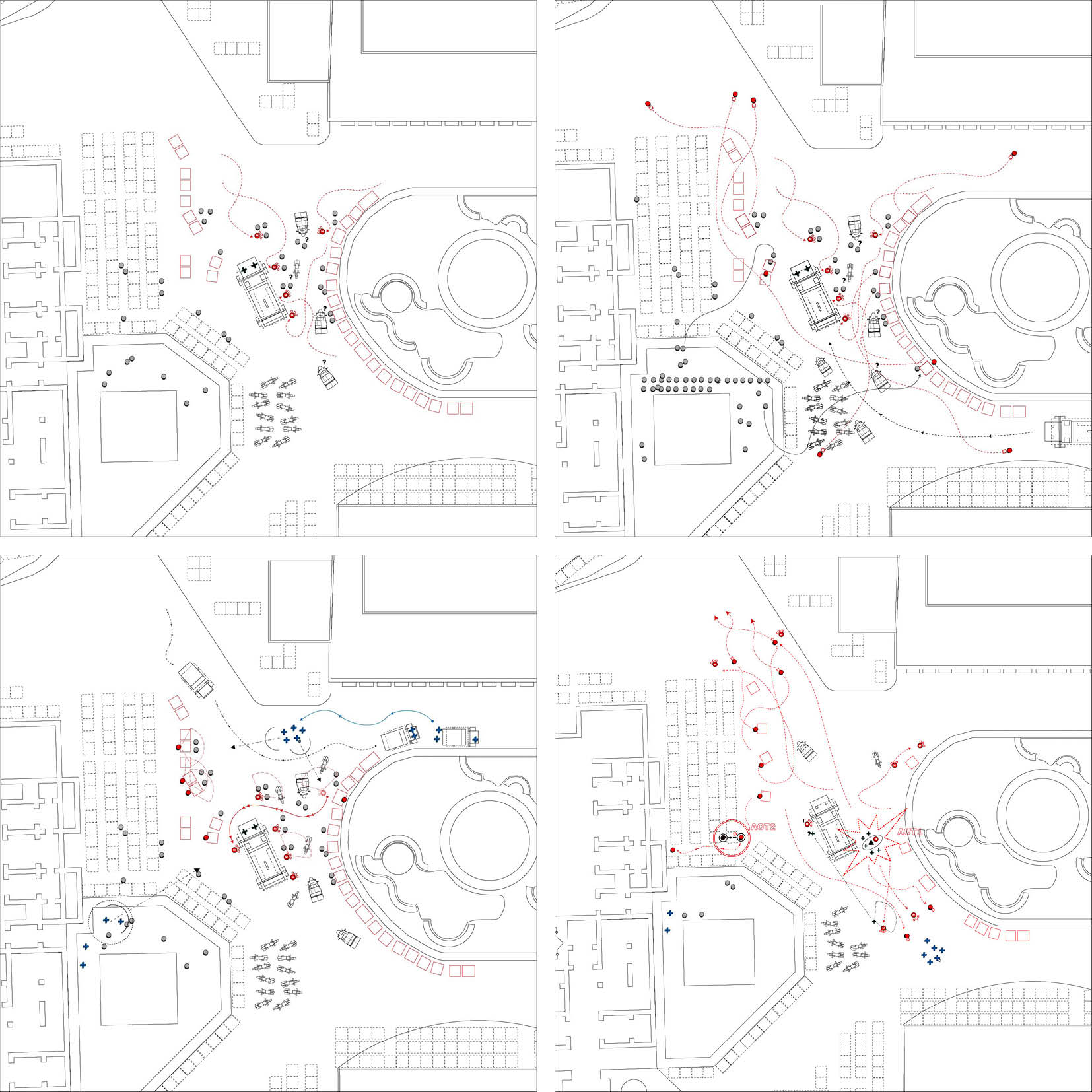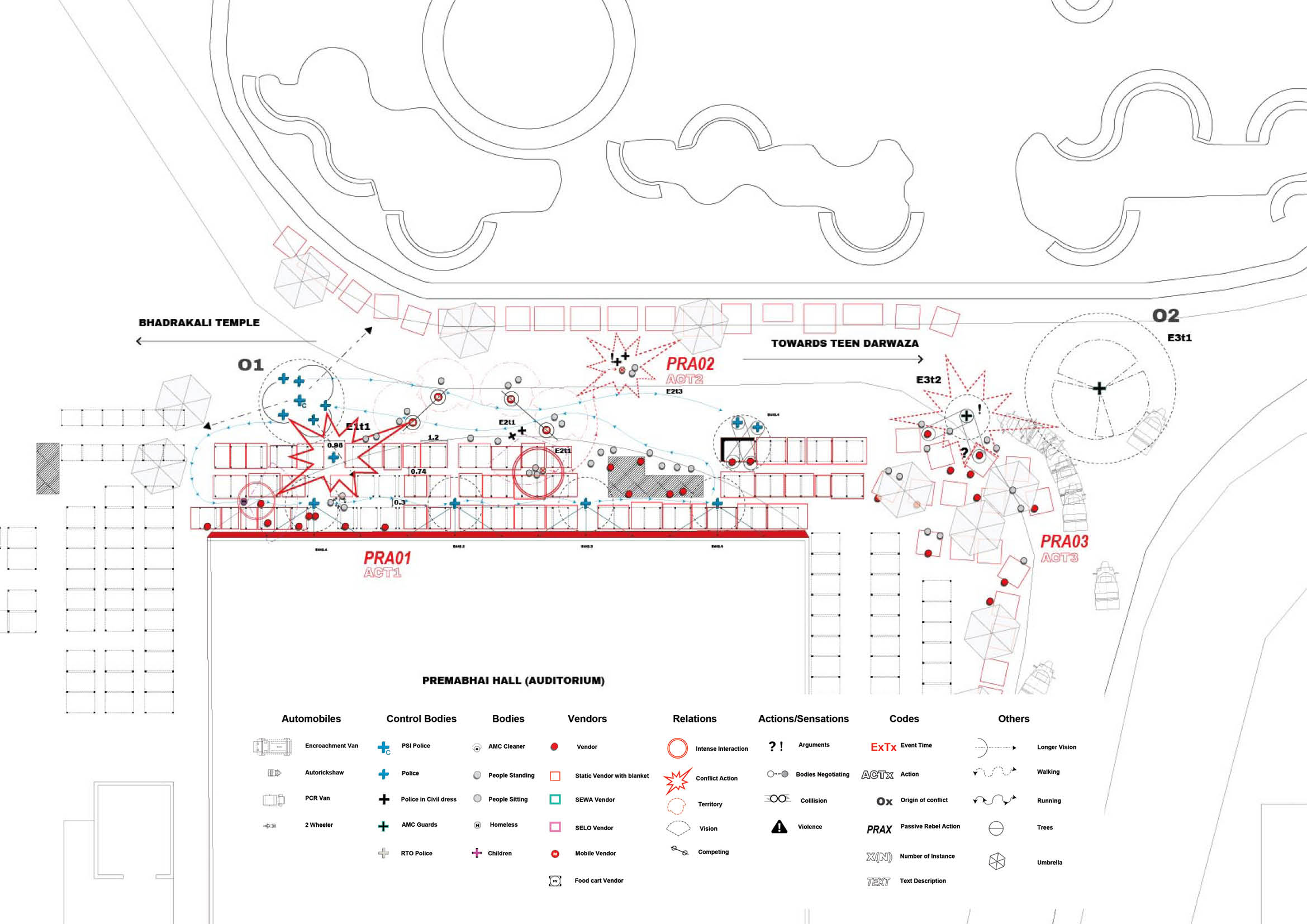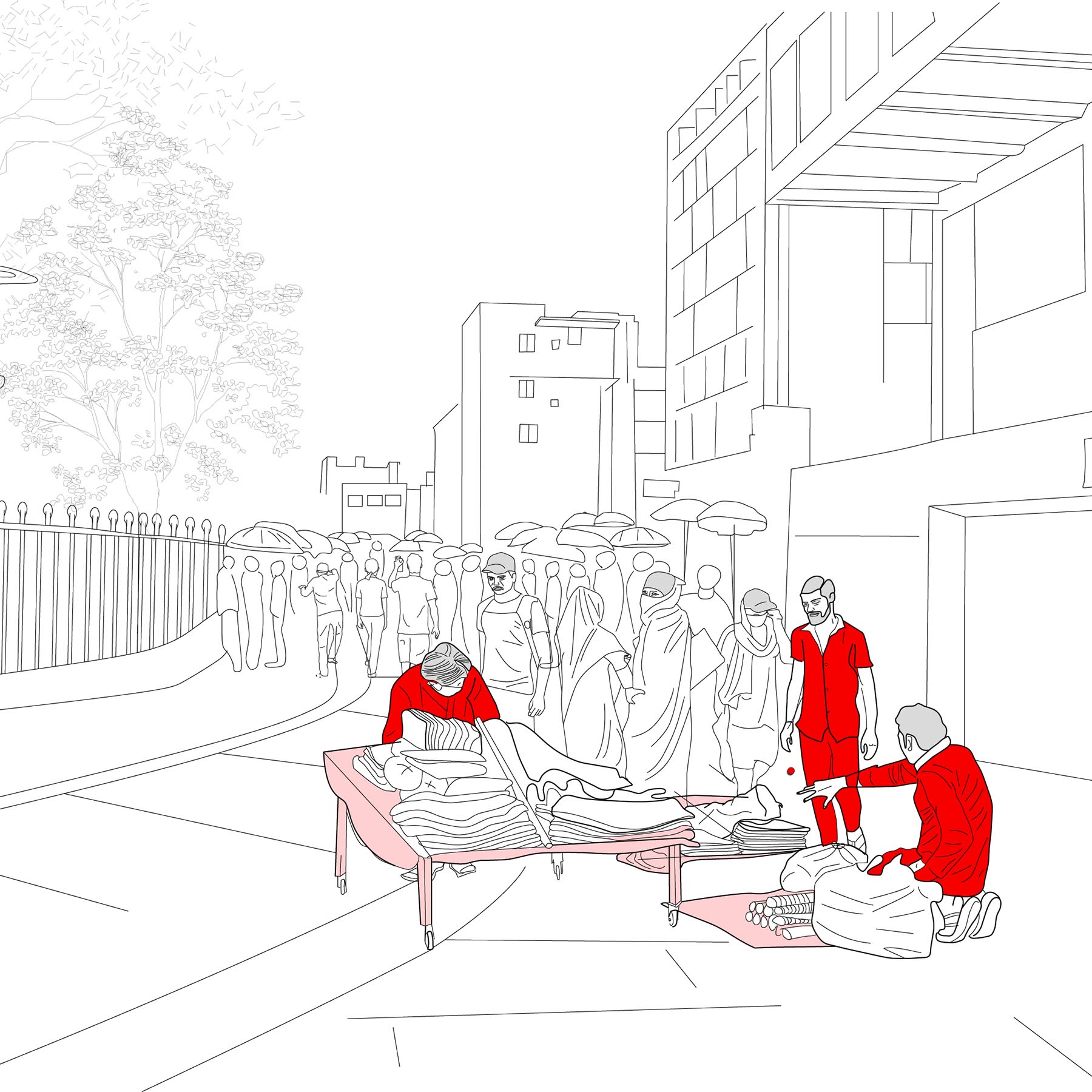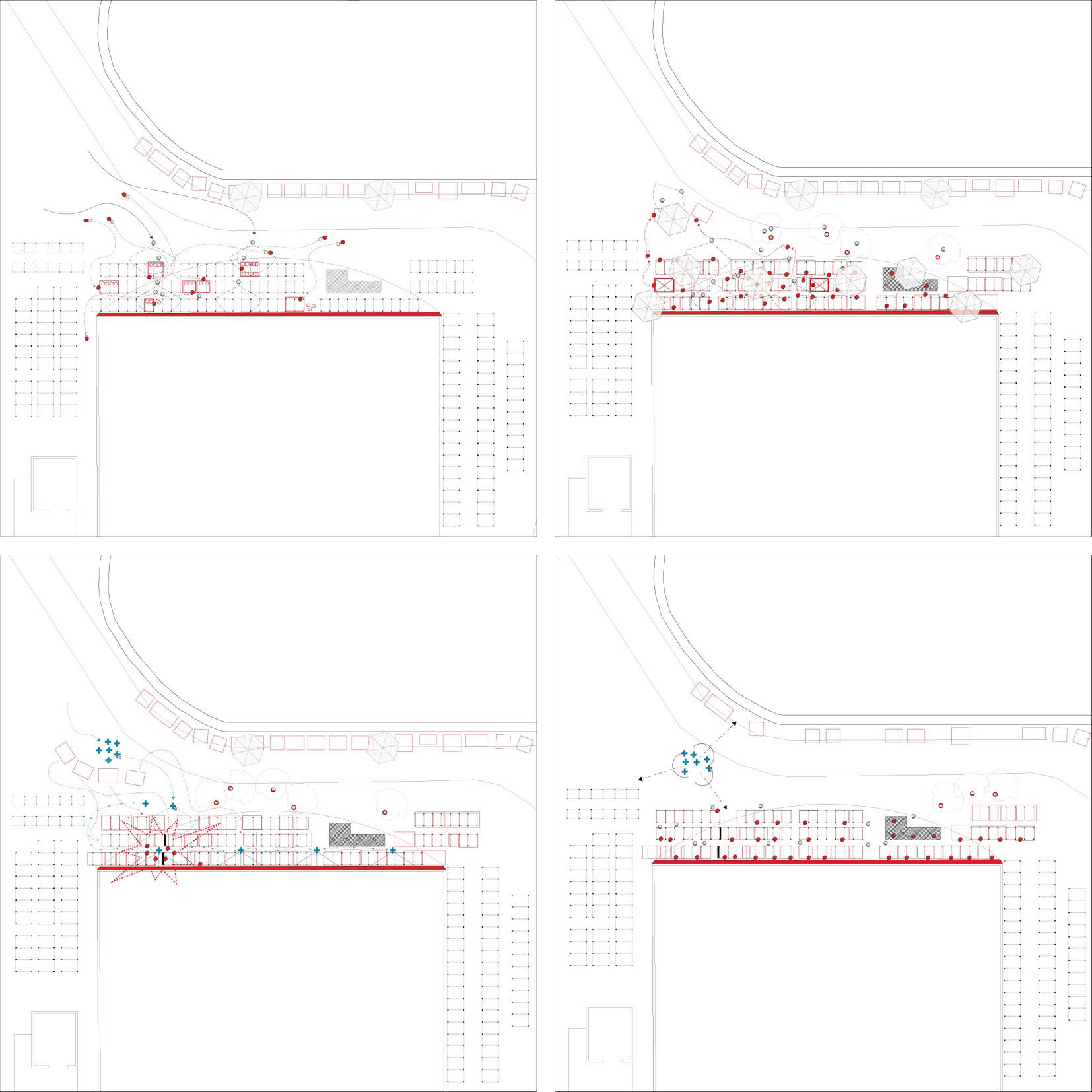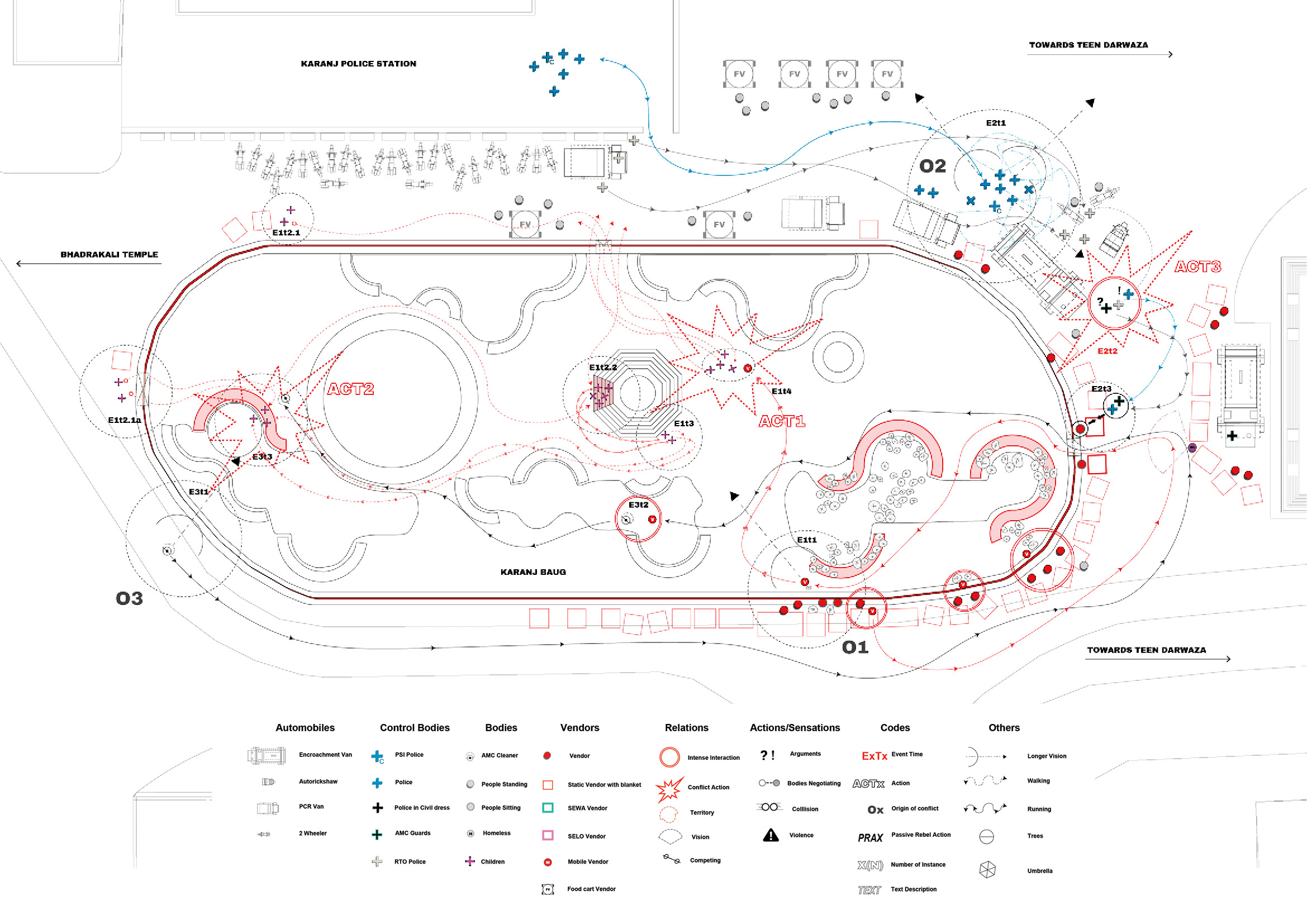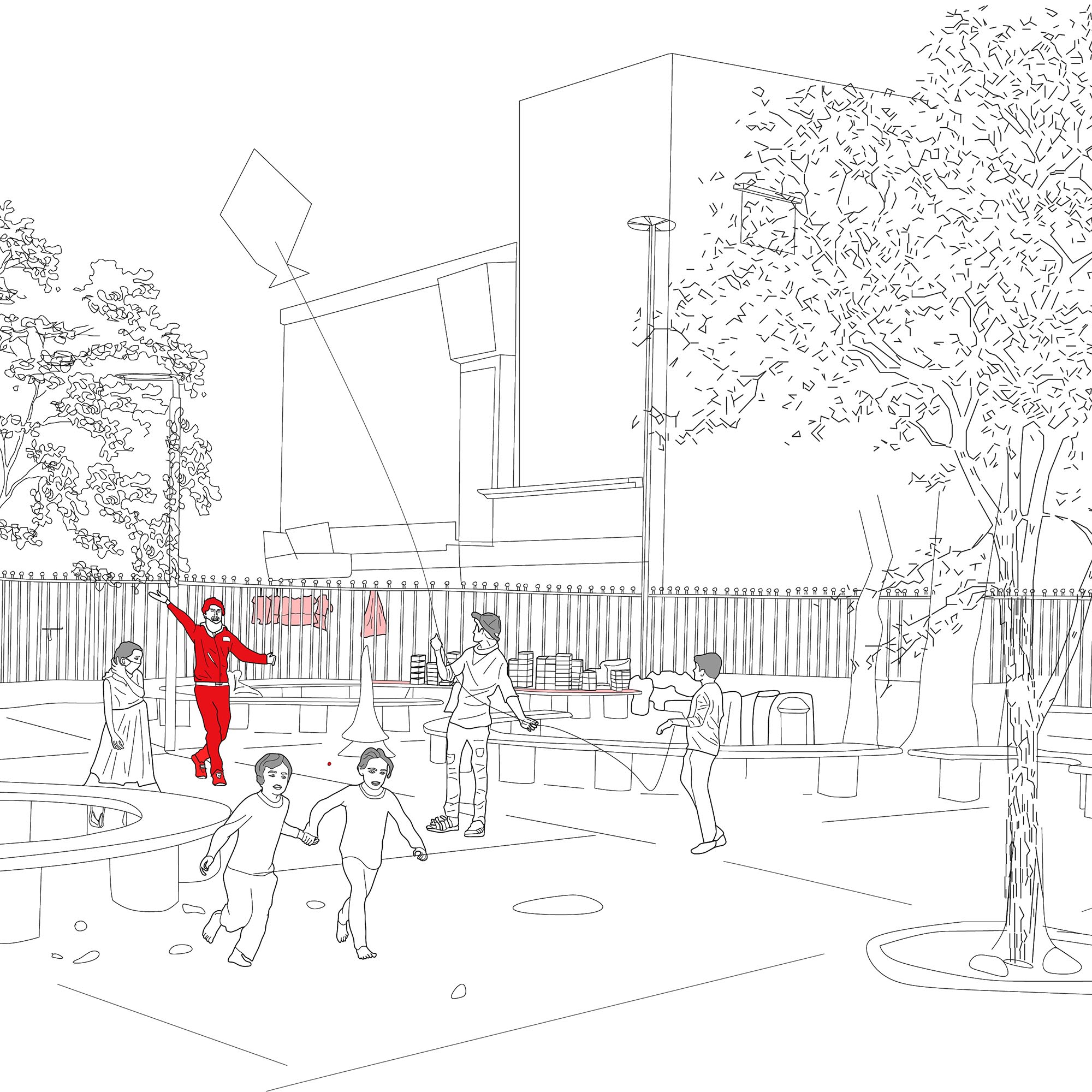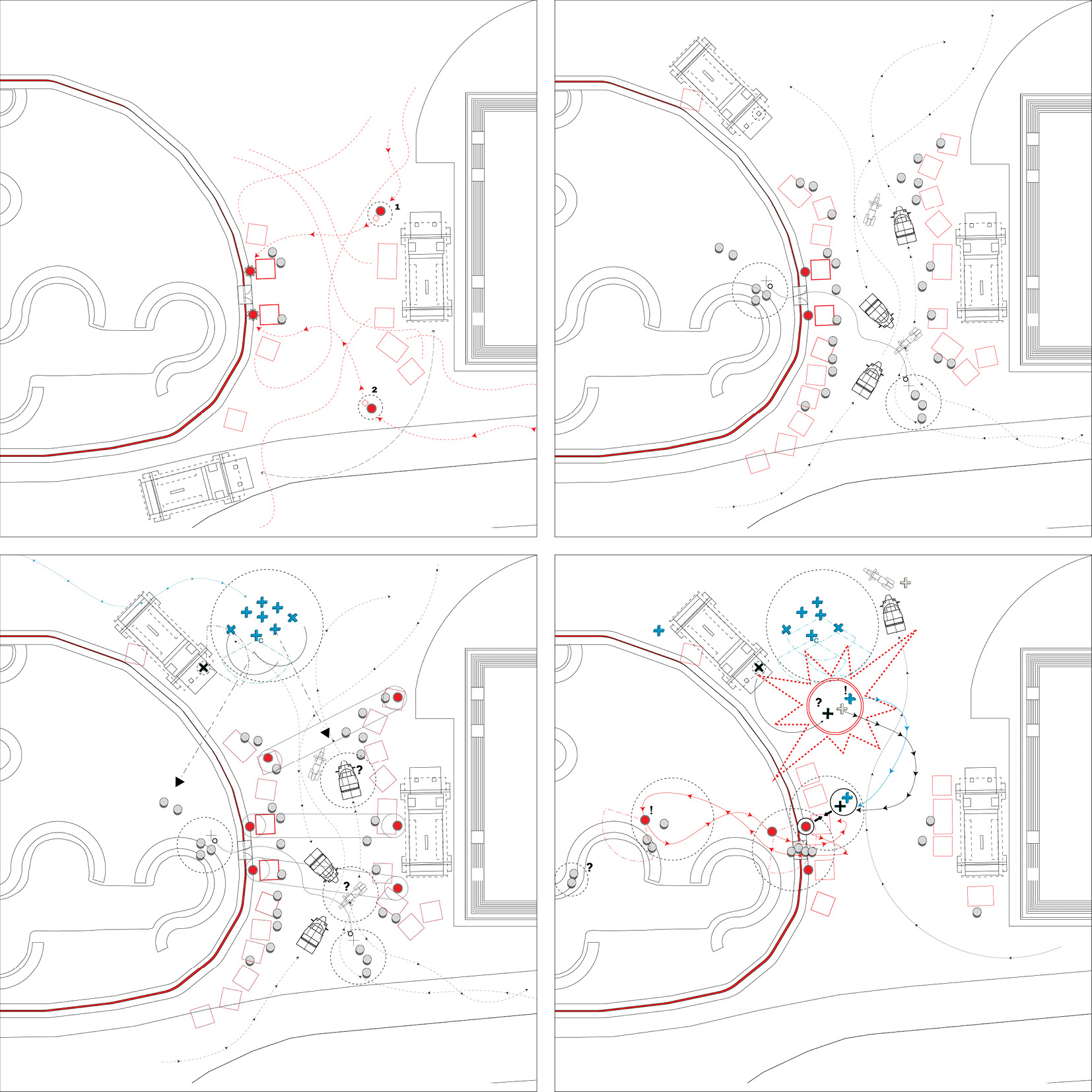In our neighbourhoods, public spaces act as valuable assets. Amongst their many functions, they provide a myriad of opportunities for users to engage with one another. Human activity is moderated in public spaces, which often contributes to the formation of collective and individual identities. As a result of this, these spaces are more than merely just a collection of buildings; they are places where dynamic social processes can transpire. One such public space is Ahmedabad’s Bhadra Plaza, one of the most visited areas of the city. Known for its various historical sites, it is occupied by various stakeholders who engage in many economic activities and thus, make it a complex and highly contested space within the walled city.
For the citizens of Ahmedabad, the Bhadra Plaza is a large marketplace where vendors occupy vital spaces, which put together, make it more than just a public space. The different spatial occupations, especially the illegal, and the needs and actions of this community override what might be the permissible use of the space, leading to extreme policing, vigilance, and negotiations. These patterns of use and claims are challenging for city authorities, and for vendors who are constantly in flux to evade the police. On one hand, from an urban management perspective, this is a ‘problem’, while on the other, it is the livelihood of many sellers from whom the Bhadra Plaza is a place to earn. These sellers adopt their own “tactics”, or reconstruct the spatial realities in ways that best suit their own requirements. These realities are, however, often read from a singular perspective of civil disobedience, violation, and informalities, that fail to understand the comprehensive picture which includes these vendors’ perspectives. Therefore, it becomes significant to understand and throw light upon the numerous dimensions, such as social activities, complex scenarios, different mindsets, as well as their mutual dependencies in a public space for any kind of reconciliation.
This study thus employs narrative cartography as a method to recognize, analyse, and examine unseen negotiations, conflicts,territoriality, and unspoken rule among various stakeholders. Narrative cartography will communicate, in a very sensitive and graphical way, the sensations, needs, and actions of the vendors in the public space.
The methodology will include observation, documentation, videography, and qualitative analysis of the space. The narrative cartographies will develop a particular visualization language to make visible the endless dimensions of the site. This thesis will, therefore, attempt to provide an accurate description of, as well as bring forth the unseen and hidden complexities of vendors, and their everyday negotiations that have acted as a constant challenge for Bhadra plaza.



